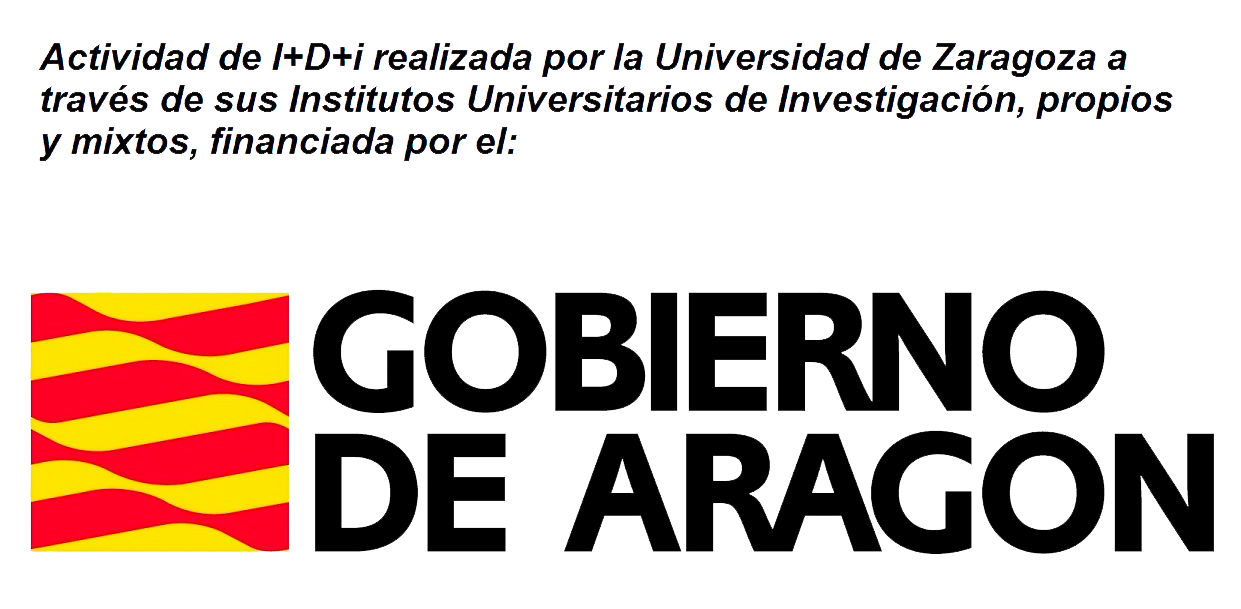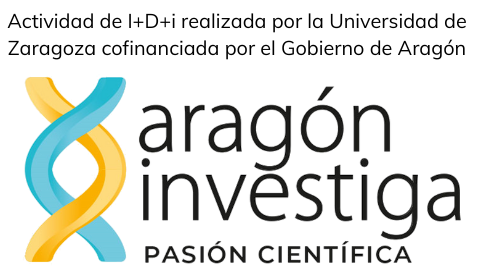Technology offer.
BIFI is a pioneer and a reference centre in many work lines. It has significant experience in transfer projects collaborating with research centres and industrial companies. In this section you can see the potential contributions to your organization consulting our extensive technological catalogue.
At BIFI there are experimental laboratories and facilities for the structural and functional characterization of protein-dependent biological systems for medical and/or technological applications. We work on:
- Quality control and formulation studies in proteins
- Cloning, expression and purification of proteins
- Protein folding and stability
- Interactions in proteins (protein-ligand, protein-protein, protein-DNA, protein-lipid, protein-carbohydrate) and biological membranes
- Identification of bioactive compounds (protein effectors -inhibitors and molecular chaperones-, as well as inductors of cell differentiation, death or apoptosis) by developing and implementing high-throughput methodologies
- Structural characterization of proteins
- Functional characterization of proteins
- Structure-function relationship, allosterism and cooperativity phenomena in proteins
- Engineering and redesign of protein function
- Gene regulation and transcription
- Development of biomarkers and detection methodologies
Instruments at BIFI are available for BIFI members and external researchers (please, contact with staff for details):
- Surface Plasmon Resonance (Biacore T200, GE Healthcare)
- Isothermal Titration Calorimetry (AutoITC200, Microcal, GE Healthcare)
- Isothermal Titration Calorimetry (VP-ITC, Microcal, GE Healthcare)
- Differential Scanning Calorimetry (VP-DSC, Microcal, GE Healthcare)
- Static and Dynamic Light Scattering (NanoStar DynaPro, Wyatt)
- Protein X-ray Diffraction (Bruker)
- Crystallization Farm and Robots (Janus, Formulatrix)
- Chromatography HPLC (Waters)
- Chromatography FPLC ÄKTA (GE Healthcare)
- Circular Dichroism/Fluorescence (Chirascan, Applied Photophysics)
- Spectrophotometry (Cary 100, Varian) (Nanovue, GE Healthcare)
- Fluorescence (Cary Eclipse, Varian)
- Fluorescence Microscopy (DMI 6000B, Leica)
- Preparative Centrifuge (Avanti J-E & J-26 XP, Beckman)
- Ultracentrifuge (Optima L-100 XP, Beckman)
- Cloning, mutagenesis, expression and purification of proteins
- Fluorescence Plate Reader (FluoDia T70, PTI)
- Fluorescence/Spectrophotometry/Luminescence Plate Reader (Synergy HT, BioTek)
- Real-Time qPCR (Mx3005P, Agilent)
More information about infrastructures here.
Contact:
Adrián Velázquez-Campoy (Calorimetry, SPR, HTS): adrianvc@unizar.es
Olga Abián (Spectroscopy, Chromatography): oabifra@unizar.es
Ramón Hurtado-Guerrero (X-ray Diffraction): rhurtado@bifi.es
José Alberto Carrodeguas (Microscopy, Centrifugation): carrode@unizar.es
BIFI is one of the leading centers in the study of Complex Networks worldwide. The research activity at COSNET Lab (http://cosnet.bifi.es/) founded in 2003 by Professor Yamir Moreno, is oriented toward the application of several tools and methods from Statistical Physics to better understand the structure and dynamics of interconnected systems and the development of potential applications to many real life phenomena. The results obtained from the activity of the Lab can be applied to a wide spectrum of disciplines in natural, social, biological and technological sciences.
During the last several years, an issue that has been faced is how to characterize and model the structure of real networks with new concepts and measures, since the models proposed in mathematical graph theory turned out to be very far from the real needs. The main result has been the identification of a series of unifying principles and statistical properties common to most of the real networks considered. On the other hand, it has been shown that the coupling architecture has important consequences in the functioning of the system. Thus, an important body of works has focused on a subject that agglutinates spreading and percolation-like processes on top of networks, addressing a variety of phenomena ranging from disease spreading to information flow and resilience to random failures and attacks.
Moreover, another branch of research has arisen in the last few years spurred by the new insights gained through network modeling. It consists of studying the dynamical behavior of large assemblies of dynamical systems interacting via complex topologies. This renewed attention to the properties of networks of dynamical units has its roots in the very nature of natural processes in Physics, Biology, Engineering Sciences and Sociology. In this way, phenomena such as synchronization, the emergence of cooperation in social and biological systems, as well as signaling and gene regulatory dynamics and other biochemical processes could be understood by considering both sources of entangled complexity: the structure and the dynamics of the system’s constituents. The expectancy is that understanding and modeling the structure of a complex network would lead to a better cottoning on its dynamical and functional behavior.
Huge advances in information technology during the last decade have yielded a wealth of multi-channel network data from industry, academia, government, and the public sector. Our research aims to analyze these data in a comprehensive way and linking different data sources to obtain a complete picture of the dynamics underlying several complex systems (social, biological, economic, technologic, etc.) and then, using the whole picture to improve models capable of predicting dynamics. We have developed the necessary tools to analyze and visualize the data as well as disseminate them among all stakeholders. These theoretical and computational tools have a direct impact on the analysis of real networked systems and will be of great interest to end users in academic, industry and public sector.
An example of our capabilities of innovation transfer is the Spin-off Kampal Data Solutions (http://www.kampal.com/) whose business model capitalizes on our knowledge about complex networks.

BIFI is one of the centers in Spain with more computing resources dedicated to scientific research.
- HPC services: computing power & storage.
- Skilled user support service.
- Complex algorithm optimization & parallelization, application porting and profiling.
- HPC resources management: monitoring, accounting.
- Data center design and maintenance.
- High availability & scalability solutions: parallel file systems, network OS booting.
- Networking technologies around HPC: Infiniband, 10GE, Myrinet.
- Software management in supercomputing environments: OS, batch schedulers, MPI.
- Consultancy on new trends in supercomputing: GPU computing, green IT.
- Deployment of hybrid solutions, Interconnection of technologies with software and middleware research.
- Cloud Computing resources, flexible infrastructures created adhoc.
- Elastic storage provision, adapted on demand.
- Design custom infrastructures for specific services.
- Adapt current computing infrastructures to Cloud Computing infrastructures.
- Deployment of new crowdsourcing frameworks.
- Complex web system development.
- Advanced visualization development (3D, Geolocation, …).
- Augmented reality development.
- Mobile platforms development.
- Network optimization software development.
- Complex interface design.
- Design and development of dedicated computers for simulation of complex systems.







